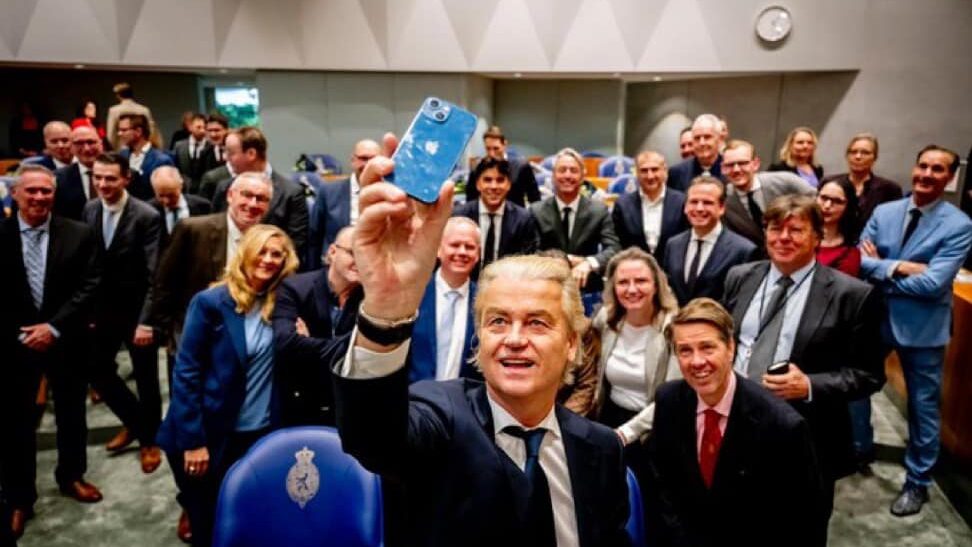
Geert Wilders
Photo: Geert Wilders / Facebook, December 6, 2023.
After the conservative Party for Freedom (PVV)’s stunning victory in the Dutch national election three weeks ago, Geert Wilders’ dream scenario—a right-wing government formed by his party, the center-right New Social Contract (NSC), the liberal People’s Party for Freedom and Democracy (VVD), and the agrarian populist party Farmer–Citizen Movement (BBB)—just might be on the cards.
On Tuesday, December 12th, coalition scout Ronald Plasterk presented his report to parliament, in which he announced that he sees no other alternative for a viable government than the PVV, VVD, NSC, and BBB joining forces.
“I recommend investigating whether an agreement has been or can be reached between the parties PVV, VVD, NSC, and BBB on a joint baseline for safeguarding the Constitution, fundamental rights and the democratic constitutional state,” Plasterk noted in his report, following weeks of exploratory talks with all political parties.
Negotiations would continue on key topics such as migration, climate, social security, nitrogen, and agriculture, he wrote.
In his report, Plasterk emphasized the importance of the aforementioned parties laying a shared foundation for long-term cooperation.
However, significant barriers remain. Both the NSC and the VVD—citing concerns over freedom of religion—hope the PVV would necessarily budge on certain erstwhile electoral promises, such as bans on the Quran, mosques, and Islamic schools, which it says are antithetical to Dutch culture.
Halting military aid to Ukraine, proposing a referendum on whether the Netherlands should leave the EU, and withdrawal from the UN Climate Treaty, would also need to be dropped.
PVV leader Wilders has expressed his willingness to “put on hold” its most controversial proposals, though these are “in the DNA” of the party, he said, as reported by NOS.
According to an EenVandaag survey, PVV voters are similarly willing to dilute important parts of its electoral program, should this bring them one step closer to a right-wing coalition.
For example, only 11% of the PVV’s base insists on a Quran and mosque ban in negotiations, whereas 84% believe Wilders can drop that demand.
In contrast, on deporting or detaining illegal asylum seekers, 91% of PVV voters are unyielding. Nearly three-quarters (70%) want a total asylum freeze. On the latter point, the combined voter bases of VVD, NSC, and BBB are divided: half believe that the PVV should be allowed to hold onto that promise, while 44% do not.
Interestingly, the deportation of criminals of non-Dutch nationality—even though it violates several international treaties—is deemed acceptable by a large majority of all the PVV’s potential coalition partners. Almost all voters of the VVD (91% ), NSC (93%), and BBB (98% ) would support the policy enshrined in a coalition agreement.
In the eyes of these parties’ voters, then, a much tougher immigration policy should be a top priority for any future cabinet.
What also emerged from Plasterk’s final report is that the VVD sees little merit in a center-left coalition with GroenLinks-PvdA. Its leader, the EU’s former climate pope Frans Timmermans, who saw his personal prime-ministerial ambitions thwarted, has indicated his new desire to become the leader of the opposition.
It now falls to the PVV to appoint an informateur who will steer talks among the Plasterk-preferred four parties until the end of February, when the speaker of the Dutch Parliament expects another report.
These talks are expected to be hard-going since, to date, the VVD has maintained its position of wanting to support a minority government without participating in the coalition. In contrast, the NSC would only agree to govern with the PVV if VVD is also in the mix.
